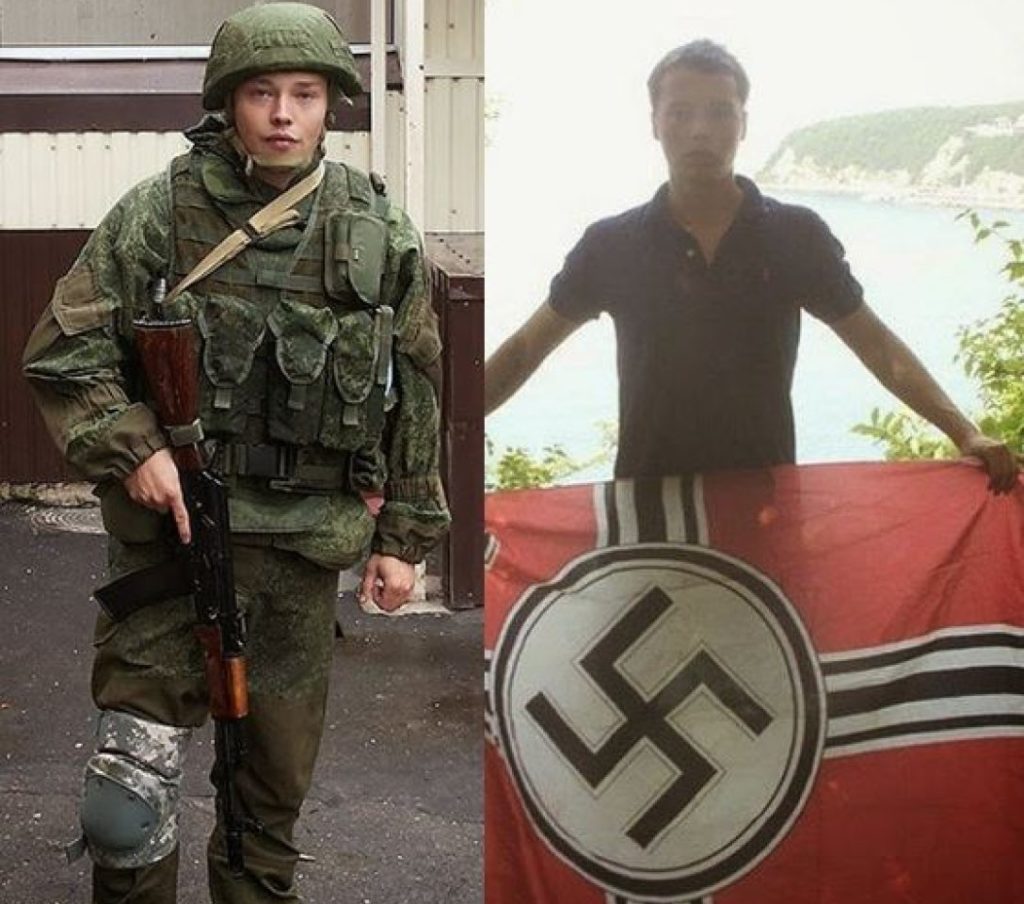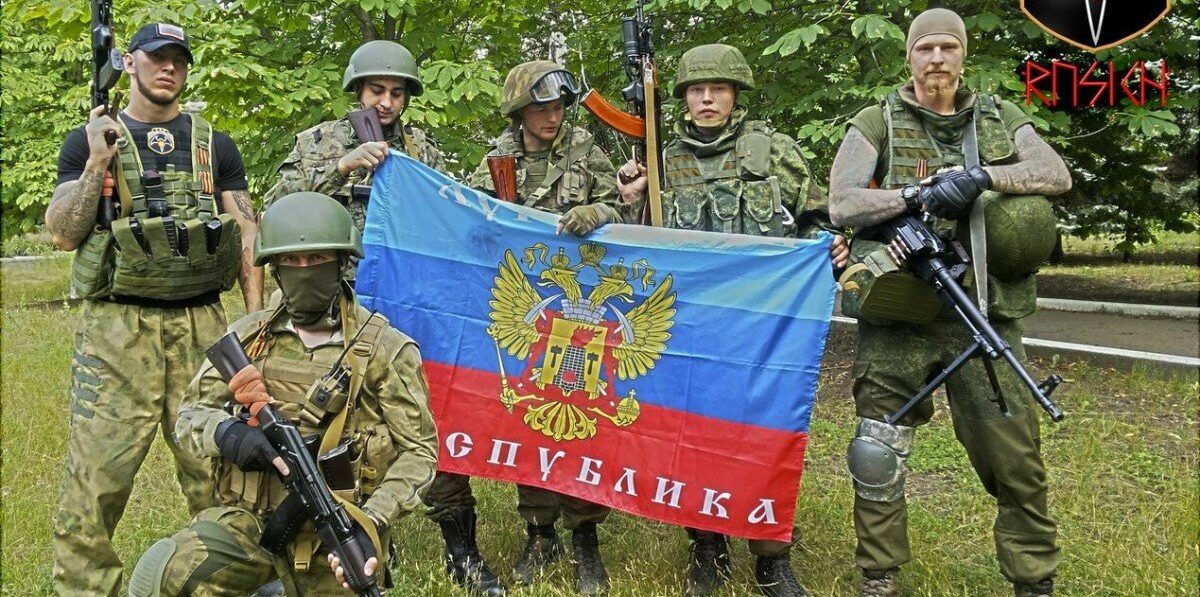As his forces began rolling on Ukraine, Russian President Vladimir Putin claimed that he wanted to “demilitarise and denazify” the country — by which he was referring to ultranationalist elements in the Ukrainian government and armed forces such as Azov Regiment, Right Sector and Freikorps.
However, there is some irony in Russia’s campaign for “denazification” in that Russia’s own military coalition in Ukraine — including its national army, mercenaries, and separatists — contain ideologically far-Right and neo-Nazi formations. The most notable of these is Task Force Rusich, which has links to the infamous mercenary Wagner Group. Rusich’s logo is a black Kolovrat, a popular symbol among radical Right-wing movements in Slavic countries, particularly Russia and Ukraine. They also use the Valknut, another symbol adopted by extremist groups.
Rusich’s profile has grown since the Russian invasion of Ukraine, and the group has developed a sizeable online following on VKontakte, Telegram, Twitter, and elsewhere. Rusich has tapped into this support base to fundraise for battlefield supplies including weapons, drones, medical supplies, and other items. The outfit also has a history of attracting foreign volunteers from Poland, Italy, Norway, and other countries. It made headlines earlier this month for urging its followers to gather and share intelligence on border activities and military movements in Latvia, Lithuania, and Estonia, a move that could signal more expansive ambitions.
Their social media pages and messaging channels frequently post updates on their battlefield and training activities in Ukraine. Images show them playing a role in training mobilised Russian soldiers, planning operations, and fighting.

The Rusich sabotage and assault reconnaissance group is highly controversial, having been accused of war crimes, such as torture, desecration of corpses and execution of captured enemy combatants. The group is led by Alexey Milchakov (pictured above), a former paratrooper, and Yan Petrovsky, with the former boasting a reputation for brutality, including depraved acts like killing a puppy, and for unabashedly promoting neo-Nazi symbols and ideology. Petrovsky, who was expelled from Norway after being declared a national security threat, reportedly took over Michakov’s duties for a period after the latter was injured.
Both men participated in the early phase of the war in the Donbas in 2014-15, and Rusich was involved in some important battles in Ukraine. Milchakov and Petrovskiy were subsequently sanctioned by Canada, Britain, and the European Union, and, according to some reports, left the conflict zone for a while shortly after. In 2021 and again this year, the group appeared in photographs from Syria, and, prior to that in 2017, Milchakov was spotted in a swimming pool near Palmyra.
As the war drags on with no clear end in sight, Rusich is set to continue their combat operations, online propaganda and crowdfunding activities, as well as growing their international support base. Having sought information about NATO countries, possibly with a view to paramilitary attacks in Latvia, Lithuania and Estonia, the group is a more wide-ranging threat than we might think.











Join the discussion
Join like minded readers that support our journalism by becoming a paid subscriber
To join the discussion in the comments, become a paid subscriber.
Join like minded readers that support our journalism, read unlimited articles and enjoy other subscriber-only benefits.
Subscribe